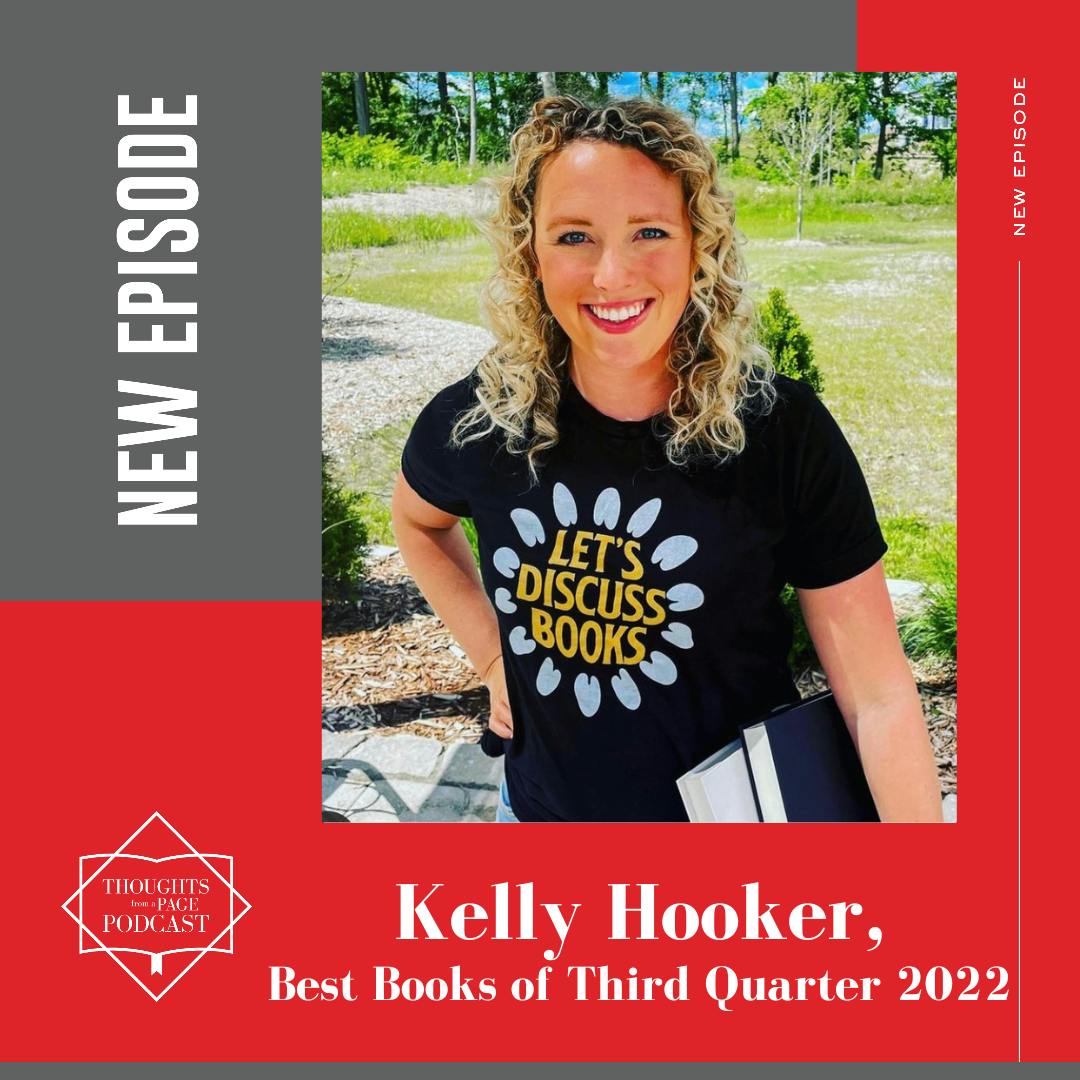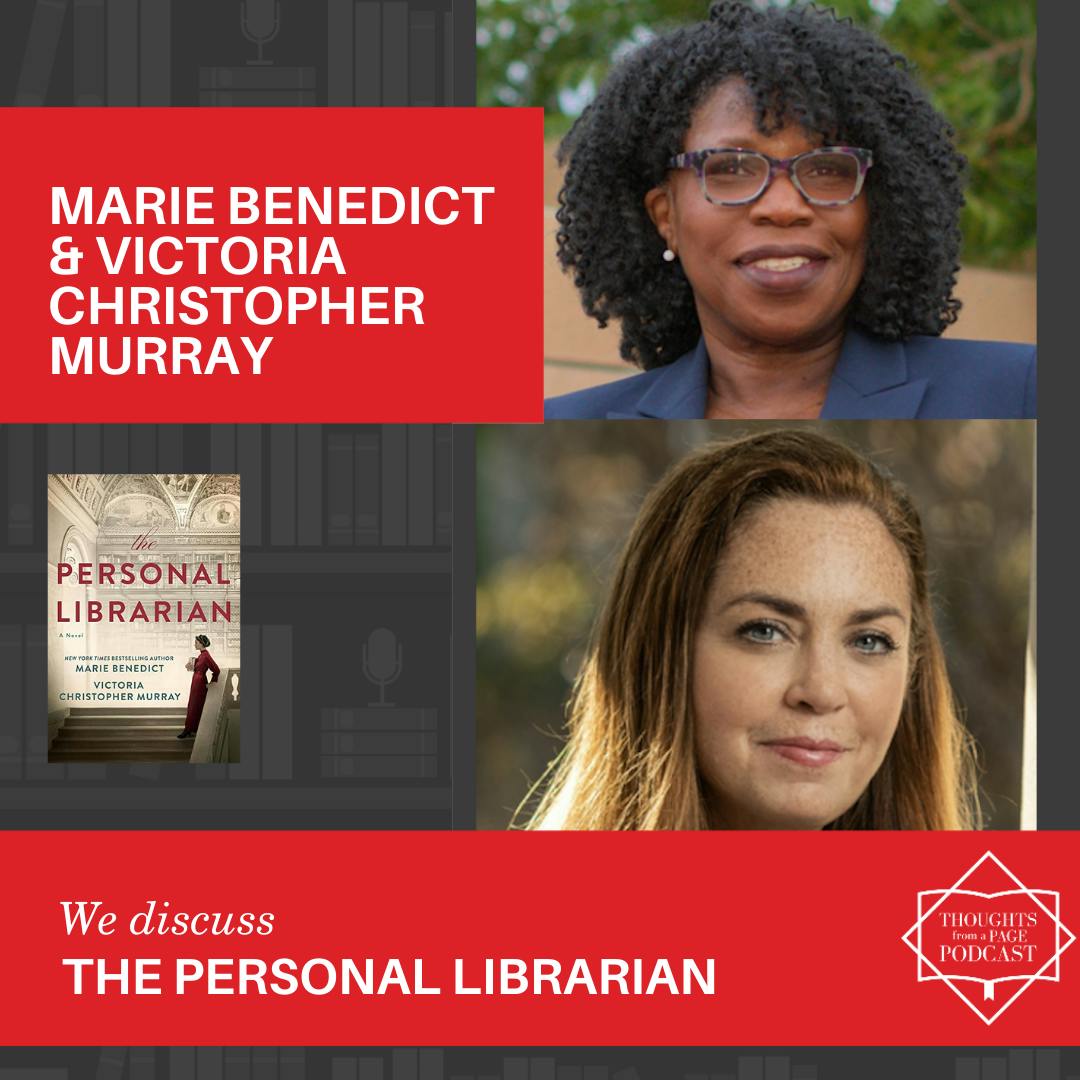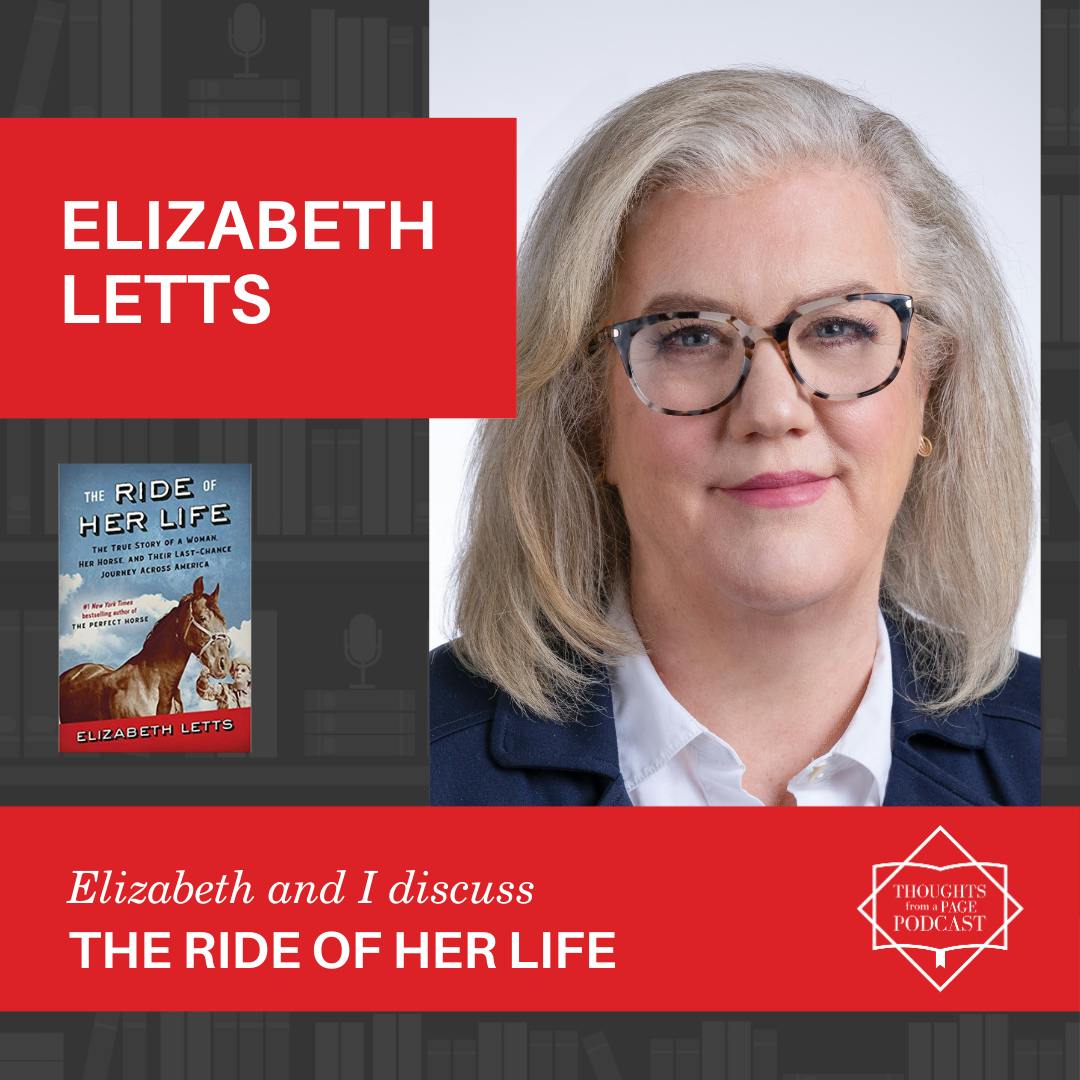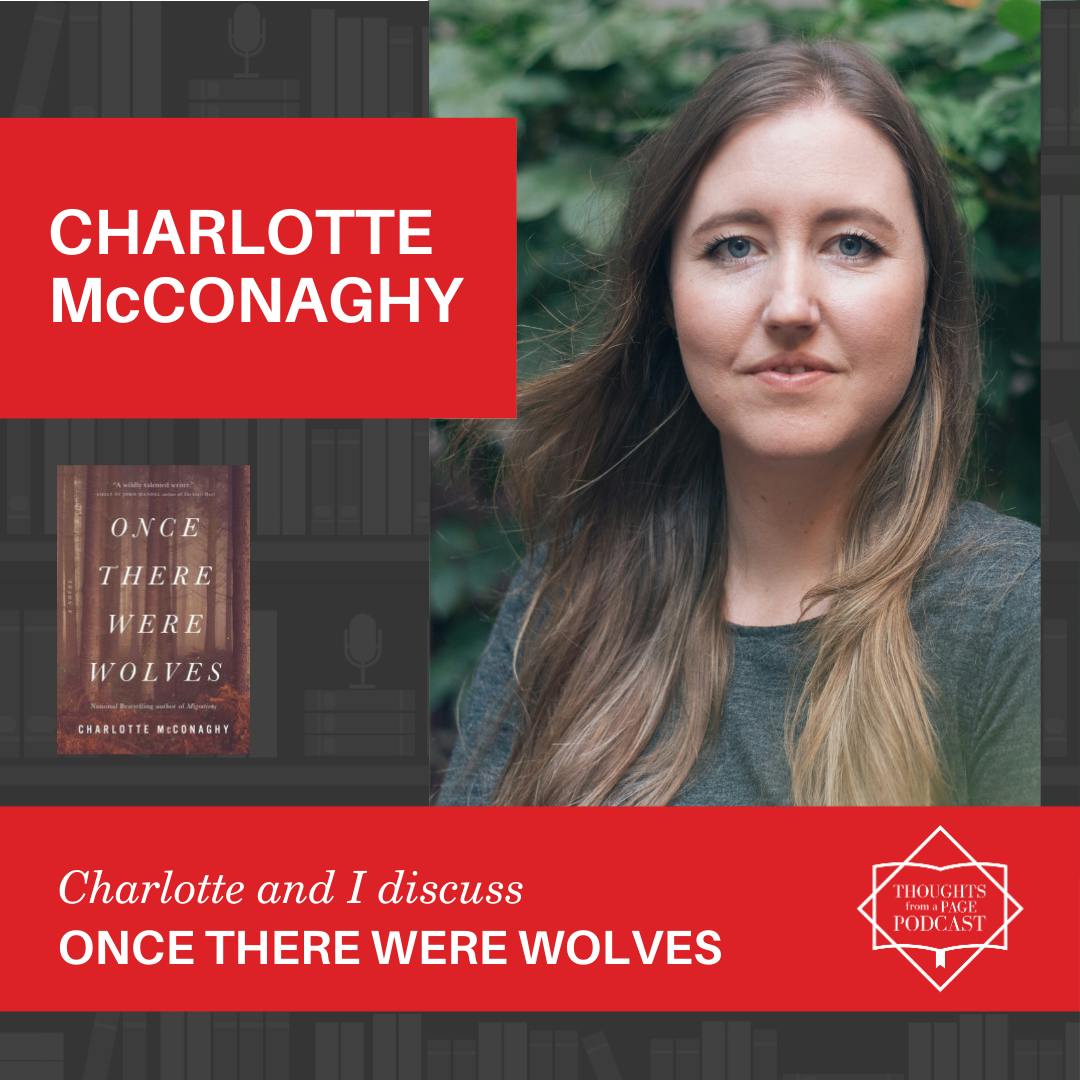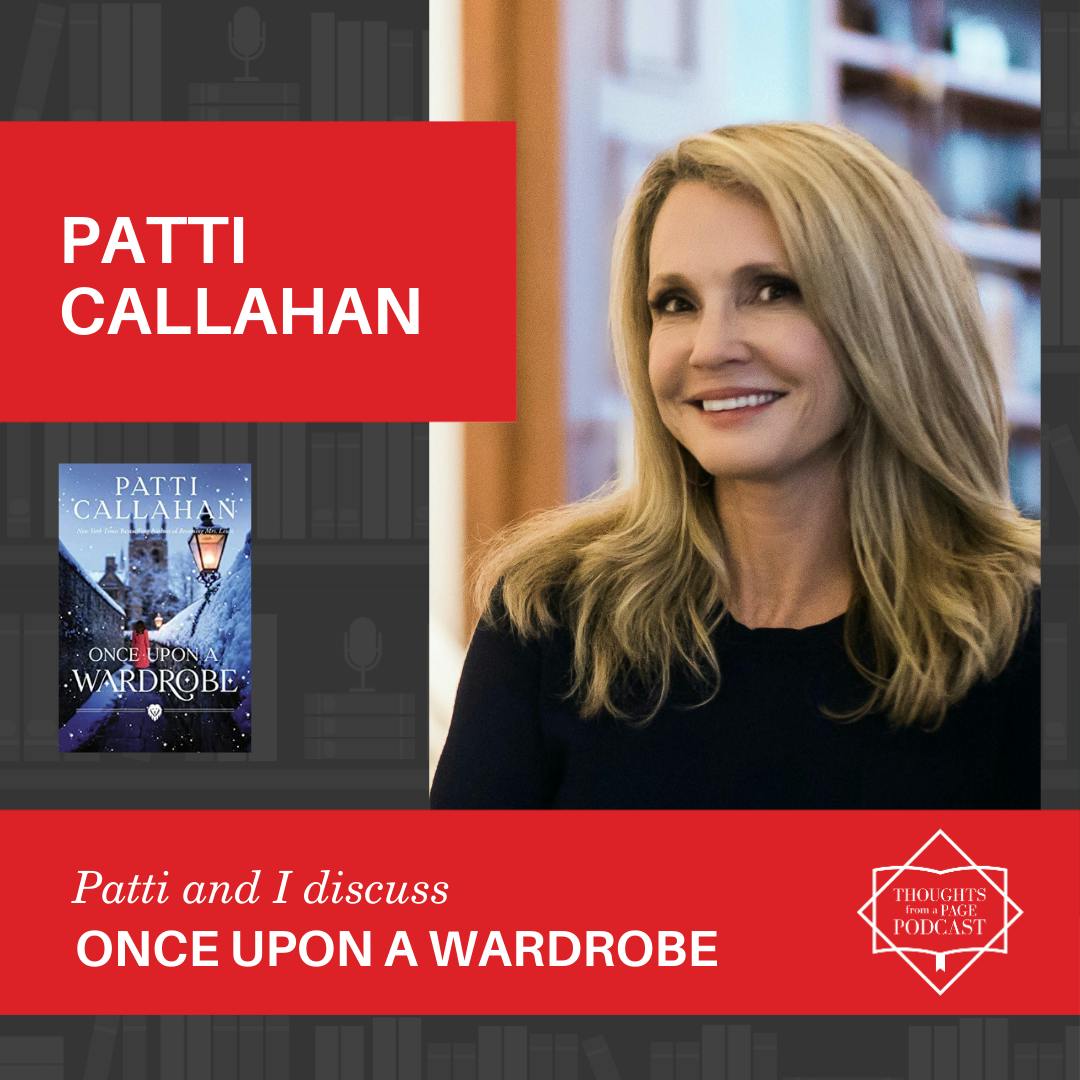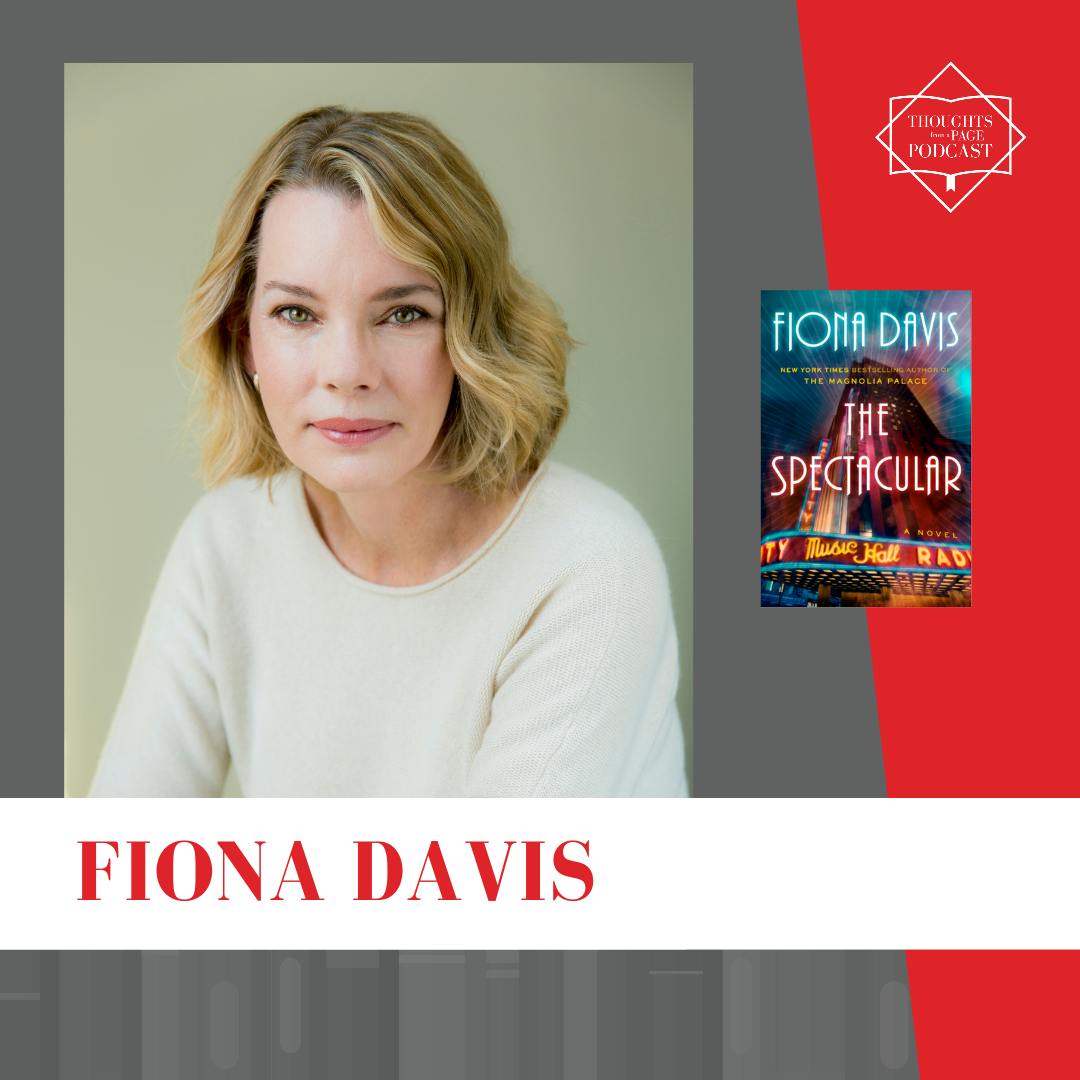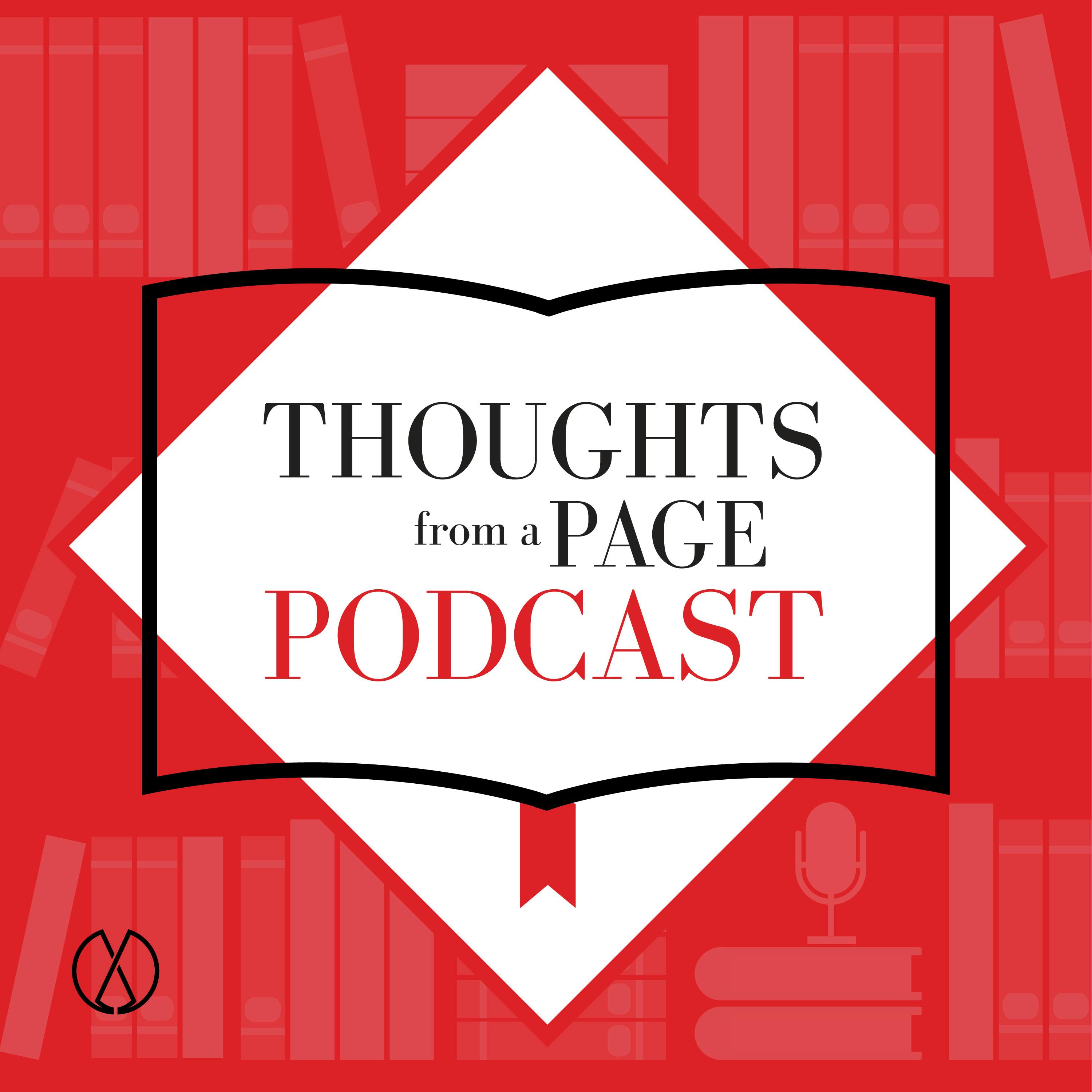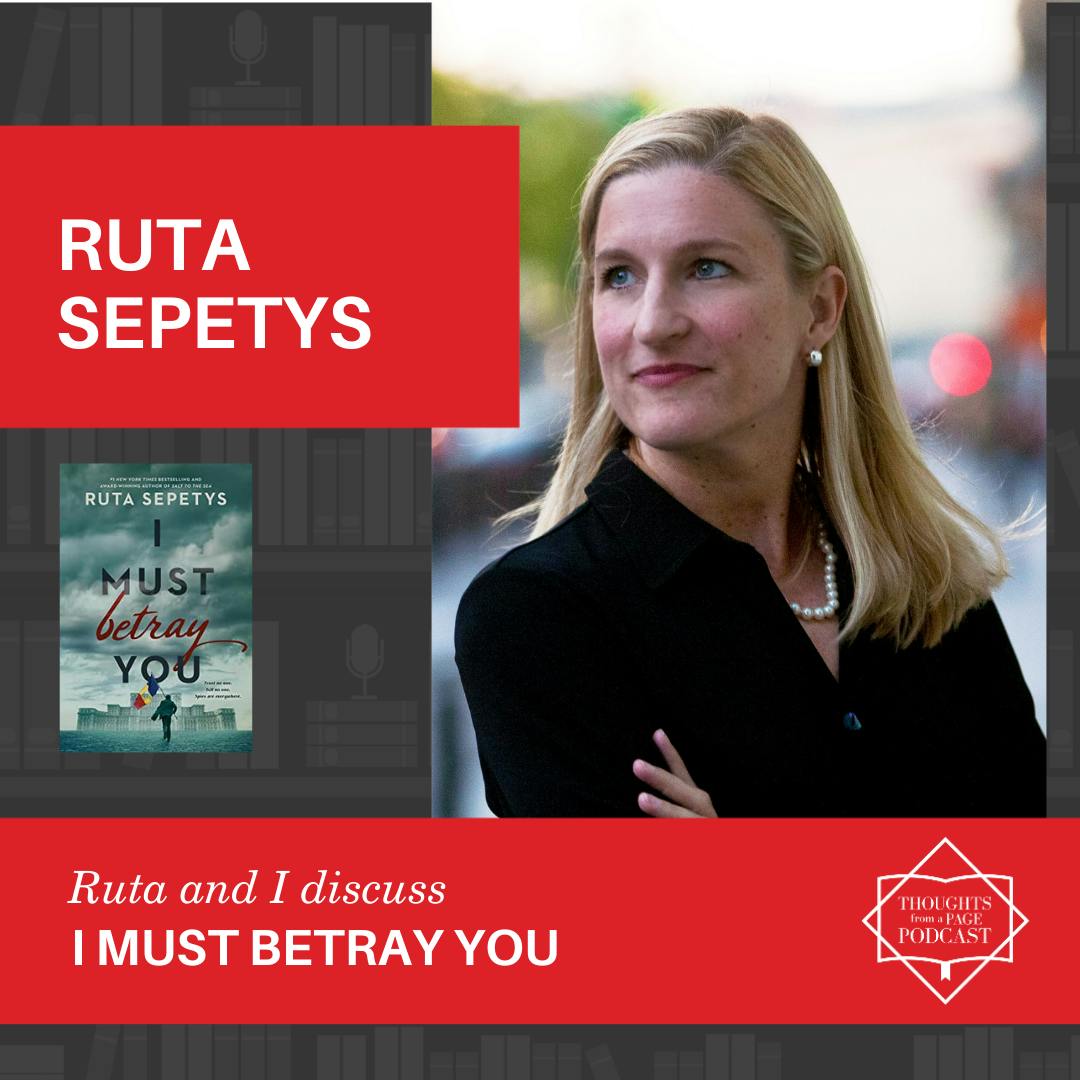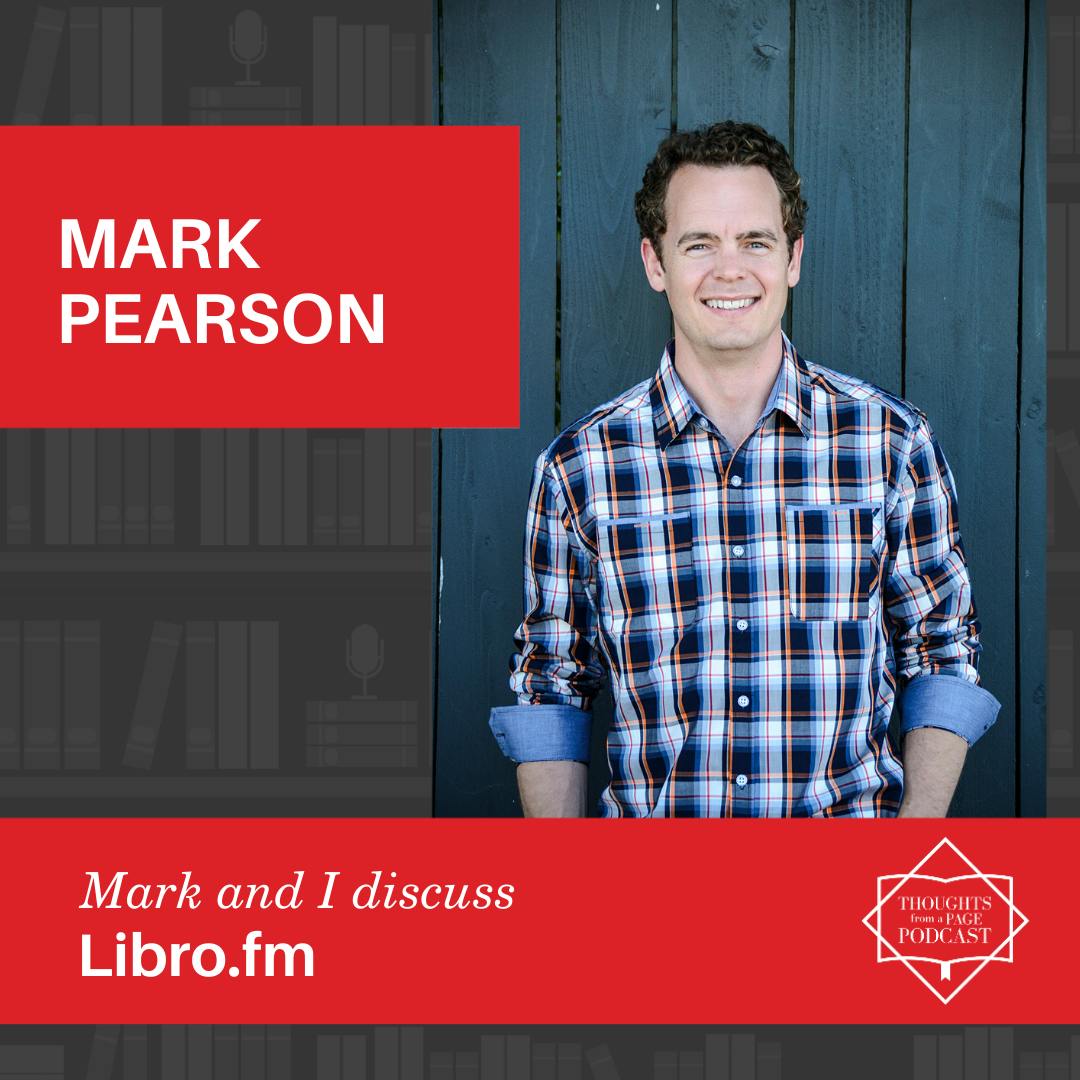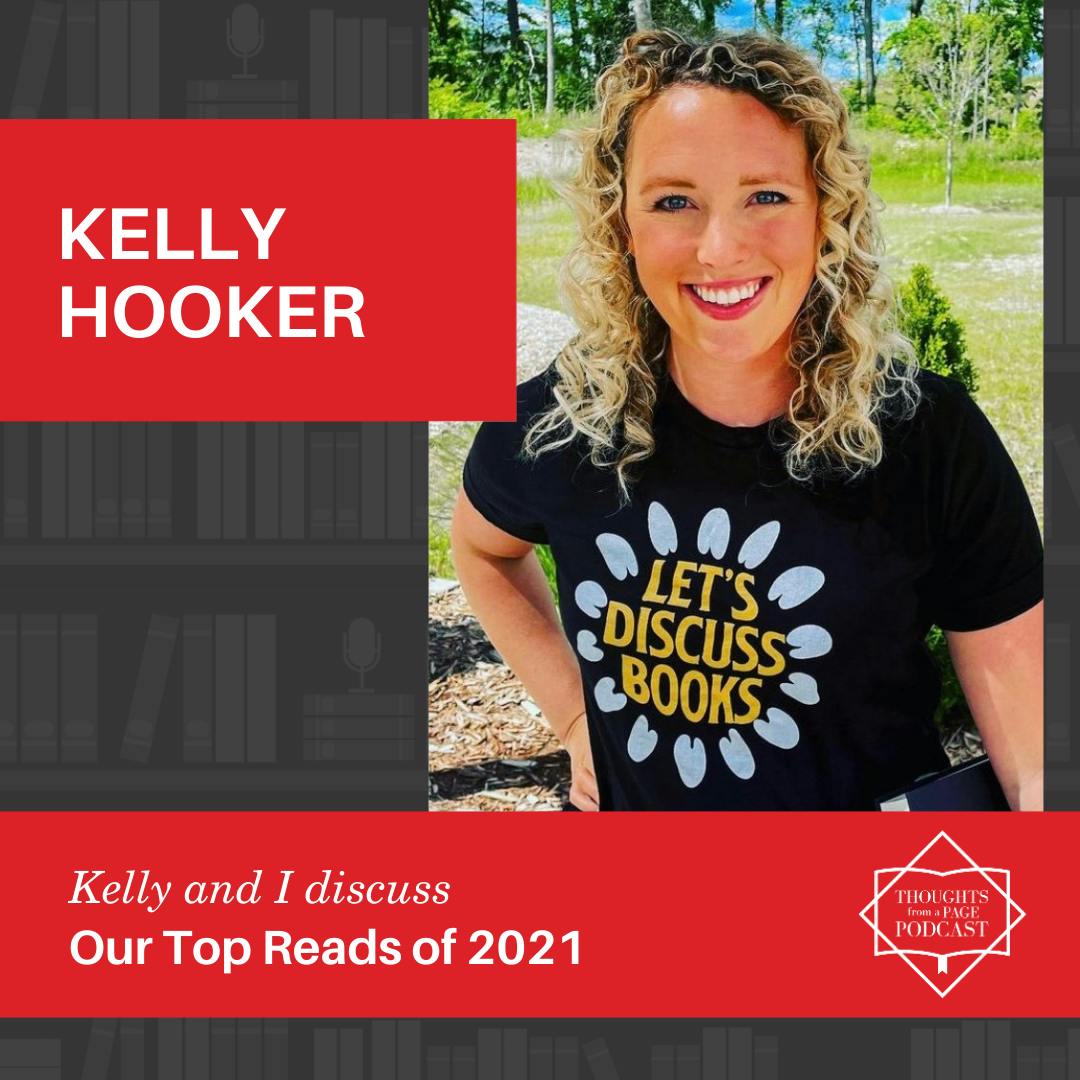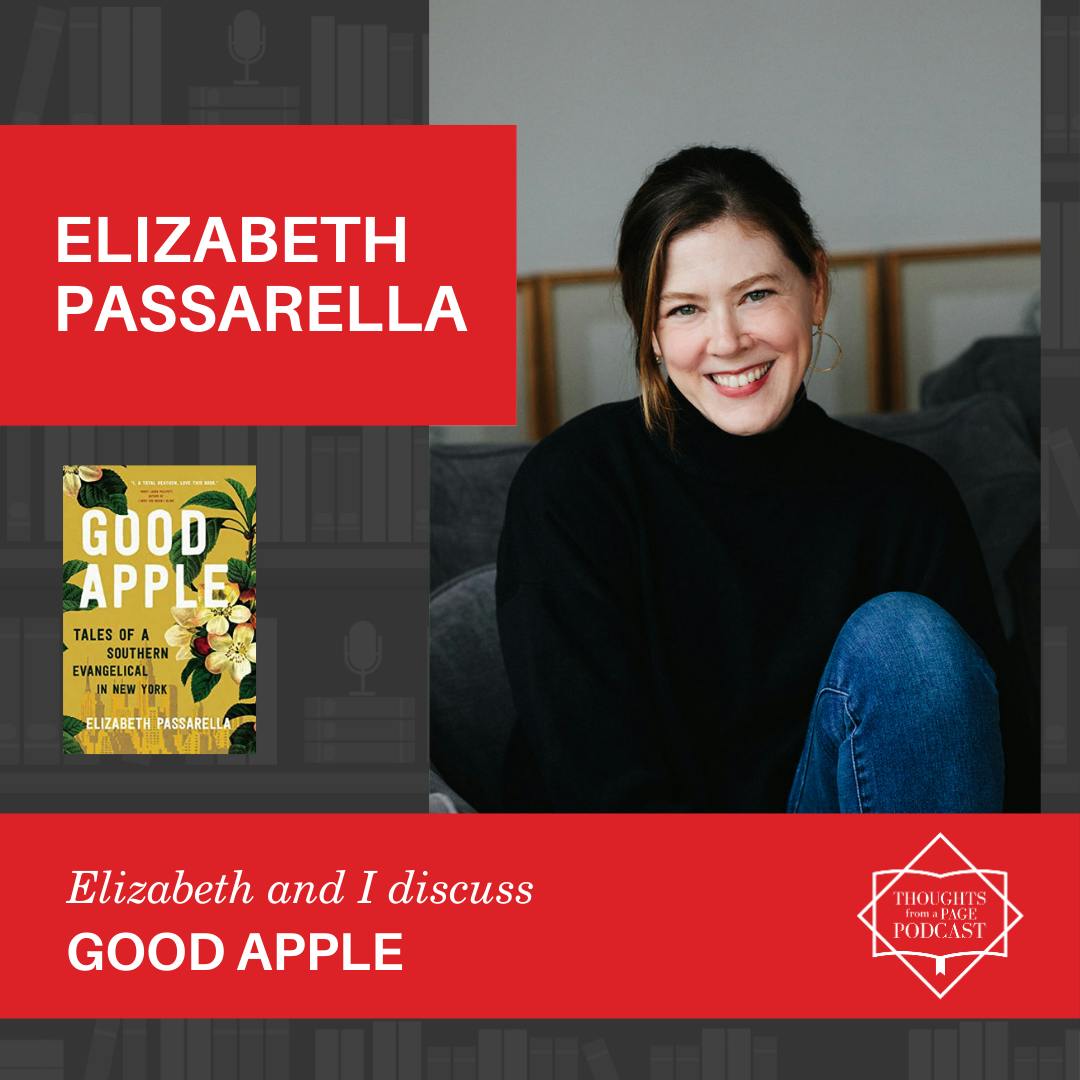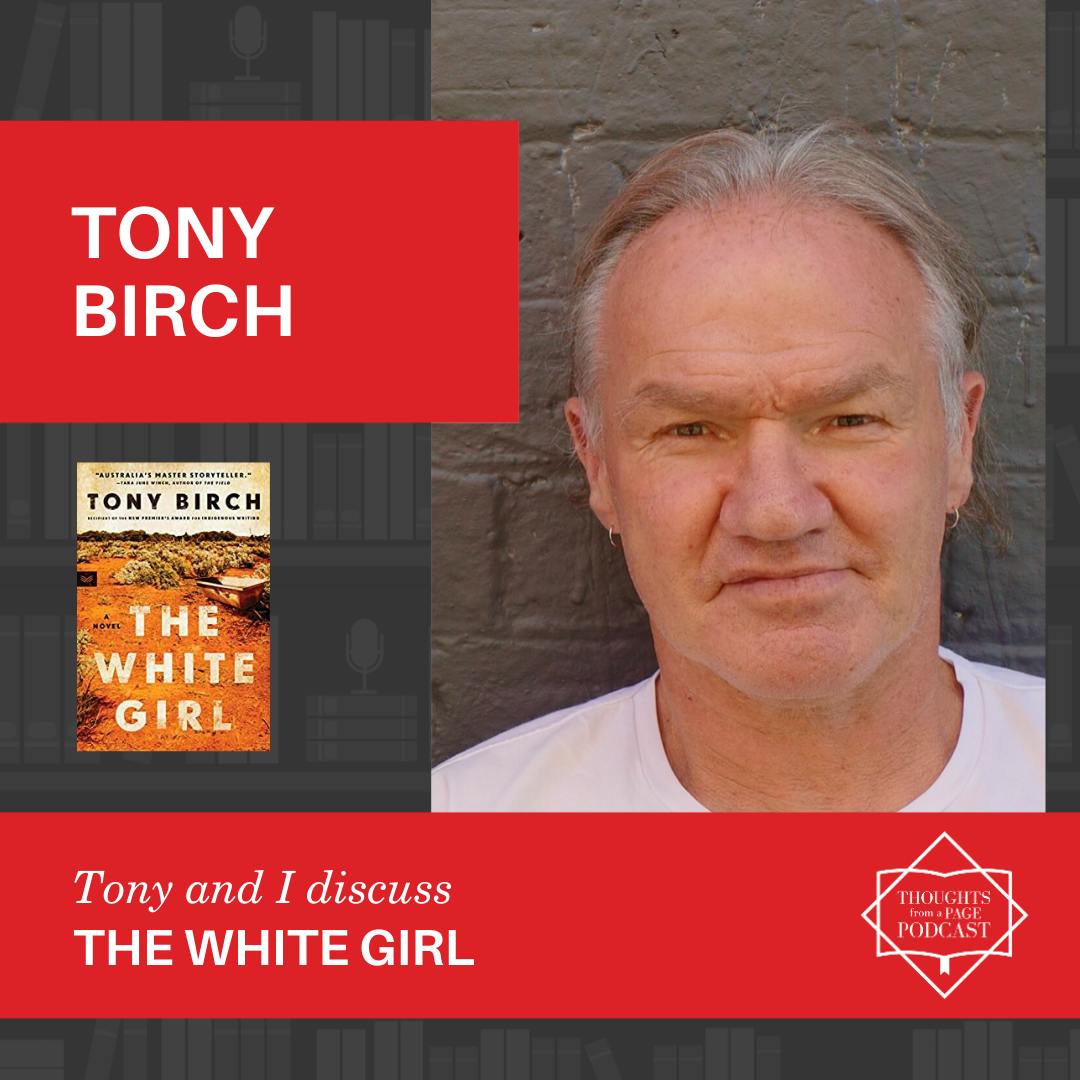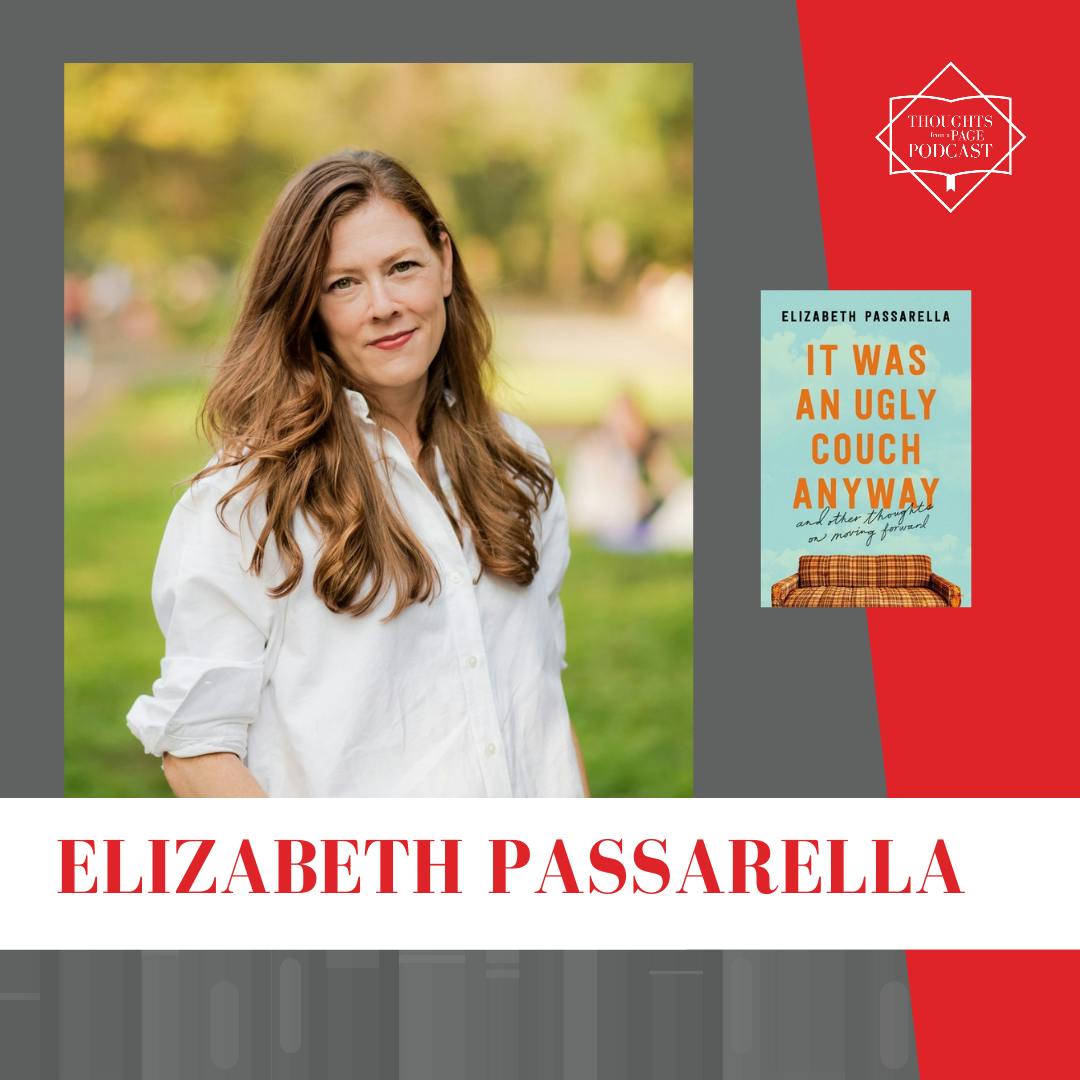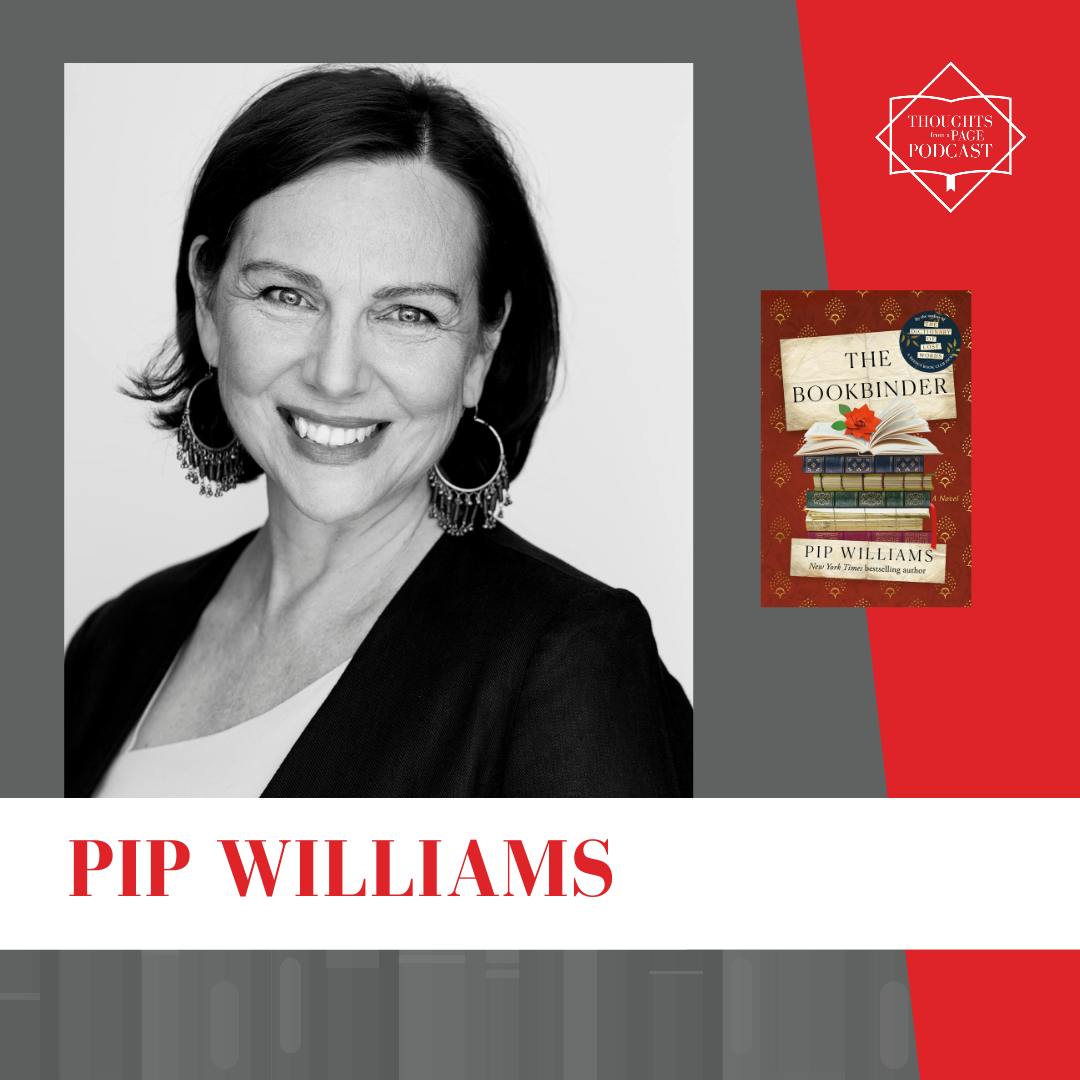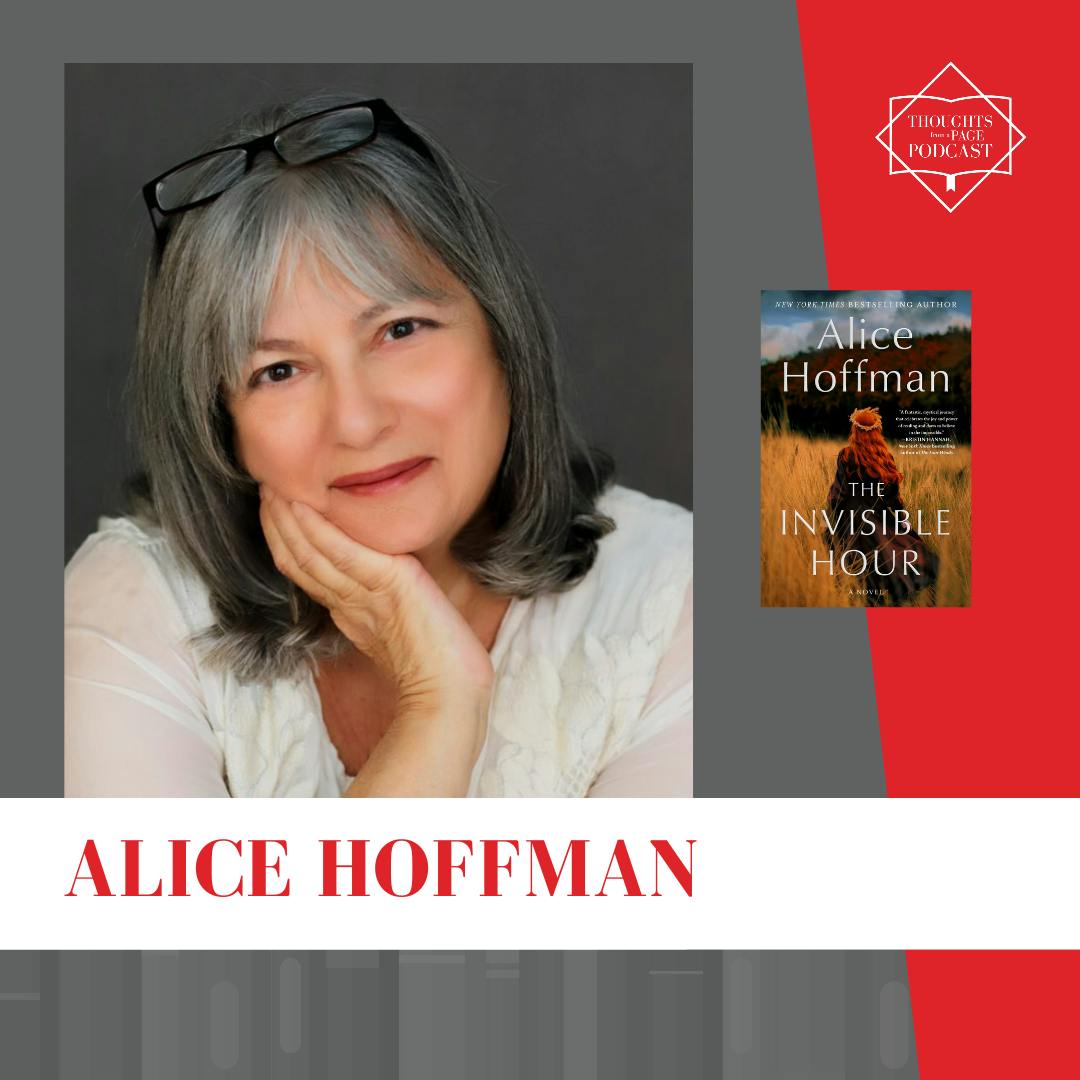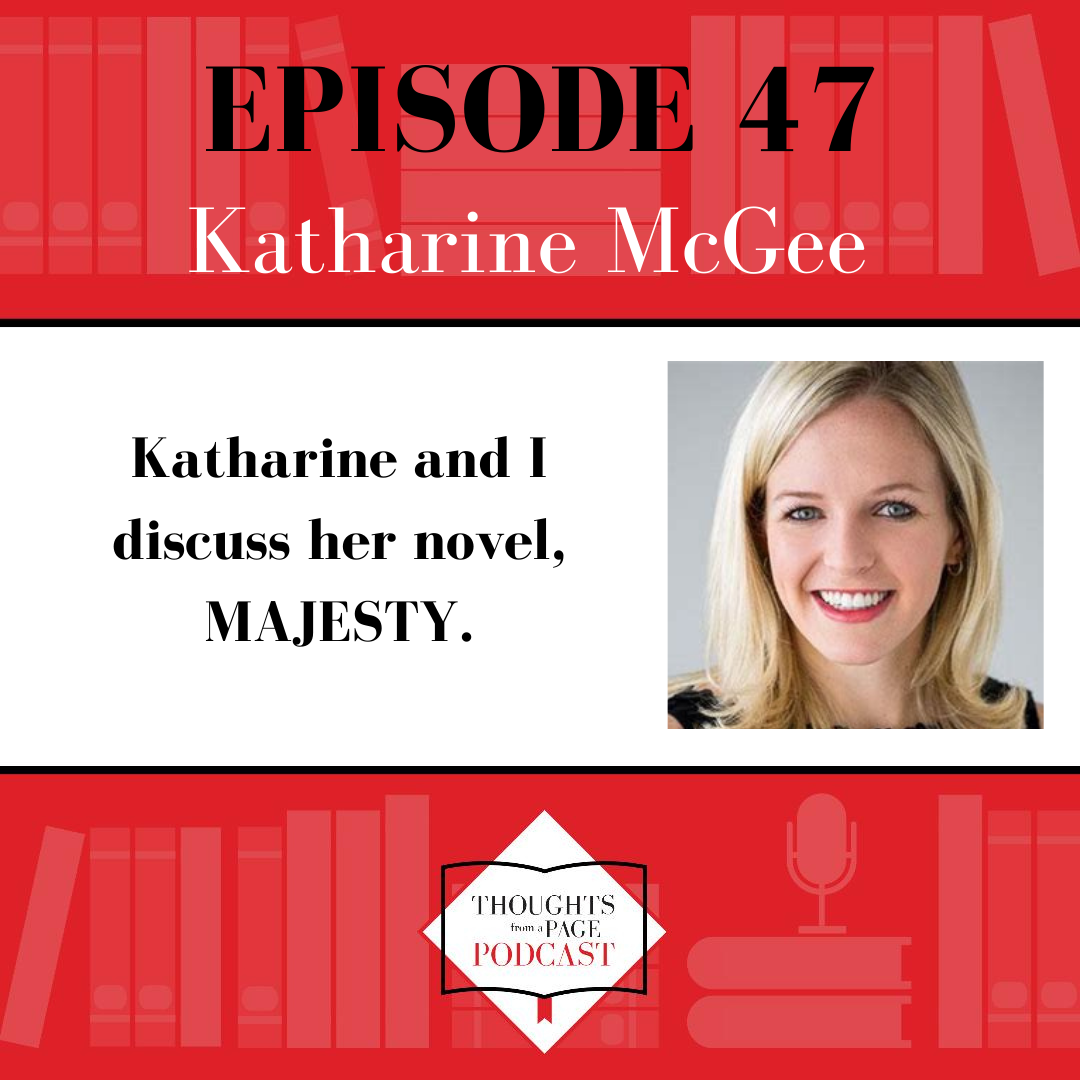
Katharine discusses her novel Majesty, the amount of world building she did for this series, writing a uchronic book, the difficulties in writing a sequel, her efforts to upend reader expectations, and much more.
Katharine discusses her novel Majesty, the amount of world building she did for this series, writing a uchronic book, the difficulties in writing a sequel, her efforts to upend reader expectations, and much more.
Majesty can be purchased at Murder by the Book.
Katharine’s 3 recommended reads are:
- The Quest for Queen Mary by James Pope-Hennessy
- Pretty Things by Janelle Brown
- Tokyo Ever After by Emiko Jean
SUMMARY KEYWORDS
book, covers, characters, story, fun, authors, monarchy, world, write, majesty, royals, plot, read, american, royal family, idea, easy, modern, happened, working
SPEAKERS
Cindy Burnett, Katharine McGee
Cindy Burnett 00:09
This is the Thoughts from a Page Podcast where I interview authors about their latest works. Listen to what inspired the storyline, how their covers and titles were chosen, their personal connection to the story, and other fascinating tidbits about the authors themselves. My name is Cindy Burnett and I love to talk about books. I can be found on Instagram and Pinterest at @thoughtsfromapage and if you have any comments about the podcast or feedback for me, I can be reached through my website thoughtsfromapage.com Today I am interviewing Katharine McGee about her latest book Majesty. Katharine is the New York Times bestselling author of the Thousandth Floor series. She studied English and French literature at Princeton and has an MBA from Stanford. She's been speculating about American royalty since her undergraduate days when she wrote a thesis on castle envy. The idea that the American psyche is missing out on something because Americans don't have a royal family of their own. Katharine lives with her husband and new baby in her hometown of Houston, Texas. Thanks for listening, and I hope you enjoy the show. Welcome, Katharine. How are you today?
Katharine McGee 01:15
I'm great. Thank you so much for having me. Cindy. I'm so excited for this.
Cindy Burnett 01:18
Oh, I'm so excited too! I'm really glad to have you here to talk about Majesty. Why don't we start out with you telling me a little bit about it.
Katharine McGee 01:26
So Majesty, for those of you who are not familiar with the American Royal series is the sequel to American Royals, which came out last year. And American Royals reimagines present day America if we were like England and had a royal family. So it essentially asked the question, What if, instead of being our first president George Washington had become our first king, and in the present day, America has a king and a queen and some princesses and it follows the romances and adventures and struggles of growing up of this younger generation of royals. So Majesty picks up immediately after American Royals book one left off, if you have read book one, you know that it ends on a very dramatic cliffhanger. And all of the characters are reeling from what happened at the end of book one and struggling to move forward and discover their new roles and, and kind of come into their own. So there's a lot of growing up in this book, and a lot of characters discovering their voices, which is a lot of fun for me, as a writer to kind of now that you know the characters to take them one step farther.
Cindy Burnett 02:30
Well, I'm completely enthralled with this idea of the United States having royalty instead of a president. How did you come up with that?
Katharine McGee 02:38
I have always been a big reader of historical fiction, anything that's set in Tudor England or I love the Stuart's I love a good rebellion and the king displaced from his throne. As a reader, I always thought that I would end up writing something like that some day. And I thought that I'd write a historical fiction novel where there were characters scheming for the throne and attempted assassinations. And it pivoted to become this modern story that still includes a great deal of those elements. When I actually saw the live broadcast of William and Kate getting married. So the Cambridges' wedding in 2011, was the very beginning of this idea. The live coverage aired in the U.S. at 6 a.m. So I did watch the royal wedding with friends before work, because that is the type of thing you do when you're 22. (both laugh) And we got up early, and we drank mimosas. And we wore fascinators. And we thought we were having so much fun. And I remember then going out and taking the subway to work and just seeing that as I walked through the streets of Manhattan, it felt like everyone was engaging with the Royal Wedding. People were talking about it. The playback was planning on the jumbotron at Times Square. It was so fascinating to me that America was so invested in this romance and this monarchy that doesn't even belong to us, which of course got me thinking, what would it be like if we did have a royal family. So I actually tried to write a version of American Royals that year. I was very young, and I was not ready to be a full-time writer and the story did not come out anywhere near where it is now. I made an attempt at it. And then I sort of set it aside and wrote a different series of books, which became my first trilogy, The Thousandth Floor but I was never able to let go of this idea. And so as I was wrapping up The Thousandth Floor, I was very excited to return to it. And kind of think about what were the things in my core concepts that were working and what do I need to change and now that I knew a little bit more about myself as a writer, and what types of stories I gravitated toward, it was a lot easier for me to refocus it.
Cindy Burnett 04:46
I think it's just an interesting idea, what would have happened. It would have obviously been a completely different track than what we've taken. And with everything that's happening now. It's an interesting premise to sit there and kind of ponder how things would have been different
Katharine McGee 05:00
The world building in this series is so much fun and is also definitely one of the more challenging parts that you totally hit the nail on the head, there's so much about monarchy, that is fun. That dates back to a 3 or 400 years ago, those historically changed set pieces. So coronations and the pomp and circumstance and the imperial crown of state and Princess Diana riding through the streets in the golden wedding carriage. Those are the images that stay with us. But they're not inherently modern images. If you're kind of taking, as your base assumption, this idea that America did, in fact, become a monarchy, instead of becoming this radical new form of government, which, again, it's so easy to forget now how new and radical the idea of a Democratic Republic was, that's like something that really hit that Hamilton the musical really hit home for me.
Cindy Burnett 05:58
(laughs) I was just gonna say that I'm sorry that like Hamilton, I think kind of brings that back to everybody's forefront. That it is so radical.
Katharine McGee 06:05
I know the founders were really doing something that no one had tried before. And so even though it requires a suspension of disbelief and sort of a journey into a what if world to imagine that we have a monarchy, it's not the most outlandish concept to think that we could have gone this direction. That the Constitutional Convention could have ended with George Washington on the throne. And so again, you know, I'm not a history PhD, even if you're just taking sort of the high school level assumption that the American Revolution, at least in some part, influenced all later revolutions in world history, from the French Revolution to the Spanish American colonies war for independence, you kind of land on a world that is modern, but politically has frozen in time at the end of the 18th century, which is inherently problematic. And so the challenge for me has been to try to balance the plausibility of this world. And then, of course, the real history that we have. And so keep the fun pieces of monarchy, and royal stories that we love. Because again, of course, I'm not going to write a modern book with slavery in it. And so the way that I have ended up kind of dealing with things like that is that they are mentioned in the story, but mostly in the context of the characters sort of grappling with this idea of like, what does it mean to live in an America that is not perfect. So all that is to say that there's definitely some nods to real history. And then of course, there's a lot that's imagined, of me trying to take what happened in real America, and what happened in other monarchies in the world and kind of create this fun alternate universe while again, preserving the things that we do love about monarchy, which are like the glittering gowns and the crown jewels, and the titles and all of the fun scenes that you can get out of that.
Cindy Burnett 07:59
The other thing I thought a little bit about when I was reading your book was the Man in the High Castle, that same idea of like World War Two and what had happened if we had not won and Germany had half the country and Japan had half the country. And then there was this kind of middle ground. So I guess I'm just totally always drawn to these stories that are sort of alternate histories and what would have happened if things had gone a different way.
Katharine McGee 08:20
I've learned the term for those stories. I did not know it. It is called a uchronia similar to utopia but Kronos being the root of time. And that is a word that my British publisher taught me. So she said something like, I'm so excited to be editing a uchronia, and I pretend that I knew what she's talking about and then had to had to go look it up.
Cindy Burnett 08:43
Well, I love that I just learned a new word today. So I think I know the answer to this, but I'm always so curious to hear it what comes first for you the plot or the characters?
Katharine McGee 08:51
In American Royals, I feel like the setting the setting very much came first for me, you know, sort of the what if of America with a royal family. But that said, the characters definitely came before the plot. For me, I tend to gravitate towards stories that are strongly character driven. And if anyone has read my books, you will know that I actually have a broad cast of characters. So American Royals is narrated by four young women in turn, who each have alternating POV chapters, where they're describing the events that are happening to them. And so I let the characters drive the story. I think there are very many instances where the plot should come first. That tends to happen more I think in like an epic fantasy or a quest novel. But these are more books that are about young people in a modern world who are facing the same questions that young people in our world are facing. And so it to me, I think the focus remains on the characters and kind of what they're going through and their journey as they grow up.
Cindy Burnett 09:57
Where I most often hear authors answer the question with plot is mysteries also because I do think when you're contemplating a mystery and how that's gonna unfold, you sort of probably think through your plot points and then fill in your characters.
Katharine McGee 10:10
Yes, I know you read a lot of mysteries. So you're, you're definitely the expert on that.
Cindy Burnett 10:16
(laughs) I don't know about the expert, but I do love to read them. So do you have a favorite book that you've written?
Katharine McGee 10:20
Oh, I mean, Majesty might be my favorite. Which is funny, because it caused quite a few problems, as sequels should theoretically, I think, be easier than first novels. And yet, in my experience, having written two sequels, it is not easier. I have not found it at all easier. I think that once you have established the characters, you feel like you owe them more. And you're deeper into the story, you've painted yourself into story corners. And then you have to kind of grapple with everything that you did in the first book, and I find it more challenging. So Majesty definitely was not an easy book to write. But I'm very proud of it and very happy with where it ended up. And I will say, if nothing else is surprising, I think. There were a lot of people who had predictions at the end of American Royals, book one. And I took great pleasure in turning your predictions on their head and kind of undermining your expectations and taking the story in a surprising and twisty direction. And I hope that readers enjoy going along for the ride.
Cindy Burnett 11:25
Okay, that's so funny. Yes. Because everybody's always like, Okay, I know, this is what's gonna happen. And then you're like, nope, I've got something else planned for you.
Katharine McGee 11:32
The last thing I ever want my book to feel like is just predictable or trite.
Cindy Burnett 11:36
I definitely do not enjoy it when I'm reading along, saying I knew this was gonna happen. Oh, yep, there she goes doing that. So no, I think that that is a much better read when things are surprising, especially when they're well done. So that's an interesting statement that you made about painting yourself into a corner. I hadn't really heard any authors talk about that, where you've written your first one. And then as you start to head into your second, you're thinking, well, that would be a great storyline. But oh, wait a minute. I didn't set it up. Right. That's a fascinating idea.
Katharine McGee 12:05
Yes, I think that goes back to your question about plot versus characters. Because, again, I have, when I start off at the start of a series or a story, I have an idea of where I'd like my characters to end. But I don't have a full, clearly developed sense of what every moment or beat of the plot will be along the journey. And there are definitely times where I'm approaching the second book, and I have an idea. And then I realize, Oh, I can't do it. Because of this reason, or I established this in book one, even sometimes very little things. But there are plenty of times that you write something in the first book, and you don't realize that you will later wish you could undo it.
Cindy Burnett 12:50
That you've hamstrung yourself accidentally.
Katharine McGee 12:52
Exactly.
Cindy Burnett 12:53
Well. So working in the publishing industry, do you feel like that impacted your writing or what you were going to write about or even the way you approached it?
Katharine McGee 13:02
I'm very lucky that I worked in book publishing before attempting to write because I think it gave me a great deal of confidence going into my own writing. As a reader, it's so easy to look at a book, which is a finished product, often the result of a year or more of an author's time, and many, many iterations on the story and the help of countless editors, and copy editors and marketing executives. Then to stop and say, Wow, I could never do something like that, because it feels like a very, very daunting task. And I mean, I will say that for me, the blank page never gets less terrifying. And so I think for me, having worked in publishing, and having seen how much a book changes along the way, was so inspiring and so helpful, because I realized that there is a great deal of growth and change from the first draft to the final draft. I didn't need to focus on writing a finished book which was perfect and every line of dialogue flowed seamlessly in every scene, built exactly in the right way, with the right momentum to the following scene. But rather, I just needed to write a first draft and get something down. It helped me a lot seeing other authors' first drafts, and honestly see, see how messy and how incomplete they were to then give me the confidence to go try to write a first draft of my own.
Cindy Burnett 14:31
Well, that's interesting that you say that because one of the questions I frequently ask is advice for aspiring authors. And so many times the response is very similar to what you're saying. Just get something down on paper, because you can't edit until you've got something down. So even if you're writing and you feel like this isn't very good, getting something down gives you something to get going on.
Katharine McGee 14:50
It's so easy to edit over and over and I think there are plenty of writers who get stuck, but I totally agree. Just getting some version of the story down, and then having something written that you can go back and edit and tweak and make changes to is the hardest part and is such a victory.
Cindy Burnett 15:10
No, it does seem like that is the advice that almost everybody gives is just get going. And then once you get going, you've at least got something you can turn back to and work on. And then like you said, it doesn't have to be perfect at all when it's turned in, because there's going to still be so much editing after that. So I love book covers. And I just think the American Royals covers are fantastic. Did you have a say in that?
Katharine McGee 15:34
I'm so lucky to have a very, very talented cover designer, who has made these very beautiful, very eye catching covers. I do not have a lot of say in my covers. And I think that's very common. Most authors that I talked to seem to be in a similar situation. The publishing team, this is what they do day in and day out. And they think strategically about what covers are working, where it will be placed, how to make it look good, both on the bookshelf, and as a small icon on your phone screen or your computer screen. So Random House came to me with a nearly finished cover. And I was so thrilled with it. And so glad to see that they had done something that I think captured both kind of the fun, glittering royal aspect of it, but then again, also the sharply modern take on it. I hope that no one no one should look at that book and think, Oh, this is a historical fiction novel. Where you know, if they had done a more traditional photographic cover of like a girl in a ball gown, very much could have been a risk. But I think keeping it that very vibrantly colored illustrated cover made it clear what type of story this was. So yeah, they, I mean, they do all that thinking. And truly I frequently say that cover design is one of the hardest parts of the book process. Because the cover designer has so much that they are tasked with doing in this one image. Their goal is to get your attention. And then to convey the tone and theme of the story just with this, this one picture.
Cindy Burnett 17:17
I do agree with you. I mean, I think the cover is one of the most important parts. I think people most definitely judge books by their covers. And you just want something that does convey your story. And lets people kind of have an idea of what it's about. But also you want something that's distinctive, and I feel like there become these trends and covers where a lot of them look very similar, maybe not the same colors, but just that kind of same idea. And I think that gets kind of old. And so that's what I really like about yours, that there's not anything else out there that looks like that. I see it. I immediately know that's what it is. It represents your story. And it's just very well done.
Katharine McGee 17:55
Yeah, I think they're beautiful. I'm so so happy with them.
Cindy Burnett 17:58
So are you working on anything that you would like to share with me?
Katharine McGee 18:02
Yes. So right now American Royals is just the two books. It's possible that there could be a third book someday. I like to say that I never think of stories as truly done. Should I go back into the world, I have some ideas of where I would take the characters. It would be a lot of fun to get to be in the Washington world again. But I am working on something different is in the very early stages. Because it has been a more iterative process than most this has, unsurprisingly, been a tough year to get work done. Both because of the pandemic and I'm expecting my first child later this month. So trying to write and start a new book while pregnant has been a bit of a challenge. So I'm working on a new concept that has been a long uphill road. It is really fun. I can't say anything about it. Except that it is very much more of what, if you read my books, you've come to expect from me in the sense that it is fun, family drama, secrets coming to life, forbidden love with big characters in a very, very high stakes world. But I've got a long way to go. But before it's ever gonna be published.
Cindy Burnett 19:15
Well, and you do have a lot going on. That's so exciting about your first child, and I look forward to hearing all about it.
Katharine McGee 19:22
Yes, I know he's coming later this month. So he's, he's on his way.
Cindy Burnett 19:28
Yeah, that's so exciting. Such a fun time. Well, I have loved talking with you. Before we wrap up. I would love to hear what you've read recently that you really liked.
Katharine McGee 19:36
I am always reading multiple things at once I think on the royals front for anyone who's looking for more royal things, I am currently reading James Pope-Hennessey's biography of Queen Mary. So Queen Mary is the current Queen's grandmother, the true matriarch of the Windsor family, and this biography was written in the 50s, and it's almost like a Daily Mail article. It is so soapy and fun. I can't even believe that, that this was the official sanctioned palace biography, and Queen Mary had quite the life. So she's a delight if you're looking to kind of go way back into the roots of the royal family. I've read a few things I love recently. I really enjoyed Pretty Things by Janelle Brown, which is a fun, twisty, I hesitate to call it domestic suspense, but it definitely has elements of that about a young woman who's a con artist who is trying to con an Instagram influencer out of her fortune. And I think it just it speaks so well to social media culture, and the relationships between women and how women present themselves in the world. And I really enjoyed it. And then on the YA front, I recently read a book called Tokyo Ever After by Emiko Jean, which comes out next year. I got an early look at it. And it is such a fun story about a young woman who's Japanese American, who goes on a journey to Japan, to find the father and the heritage that she never knew. And so it's all about her balancing her American upbringing with her learning about Japanese culture, and it's a lot of fun.
Cindy Burnett 21:24
Oh, that one sounds really interesting. I just finished Asha Lemmie's book, which also takes place in Japan. And I haven't read nearly as much about that area of the world. And so I look forward to checking that one out too, because definitely, it's something I'm not nearly as familiar with. And it's great to learn more about it. Well, thank you so much for joining me. I thoroughly enjoyed talking with you today.
Katharine McGee 21:43
Thank you so much for having me. This is so fun getting to speak with you.
Cindy Burnett 21:48
Thank you so much for listening to my podcast. If you liked this episode, and I hope you did, please follow me on Instagram and Pinterest at @thoughtsfromapage, tell all of your friends about the podcast, and rate it wherever you listen to your podcasts. I would really appreciate it. Majesty can be purchased at Murder by the Book where I work part time, and the link is in the show notes. Thanks to KP Regan for the sound editing, and I hope to see you next time.























